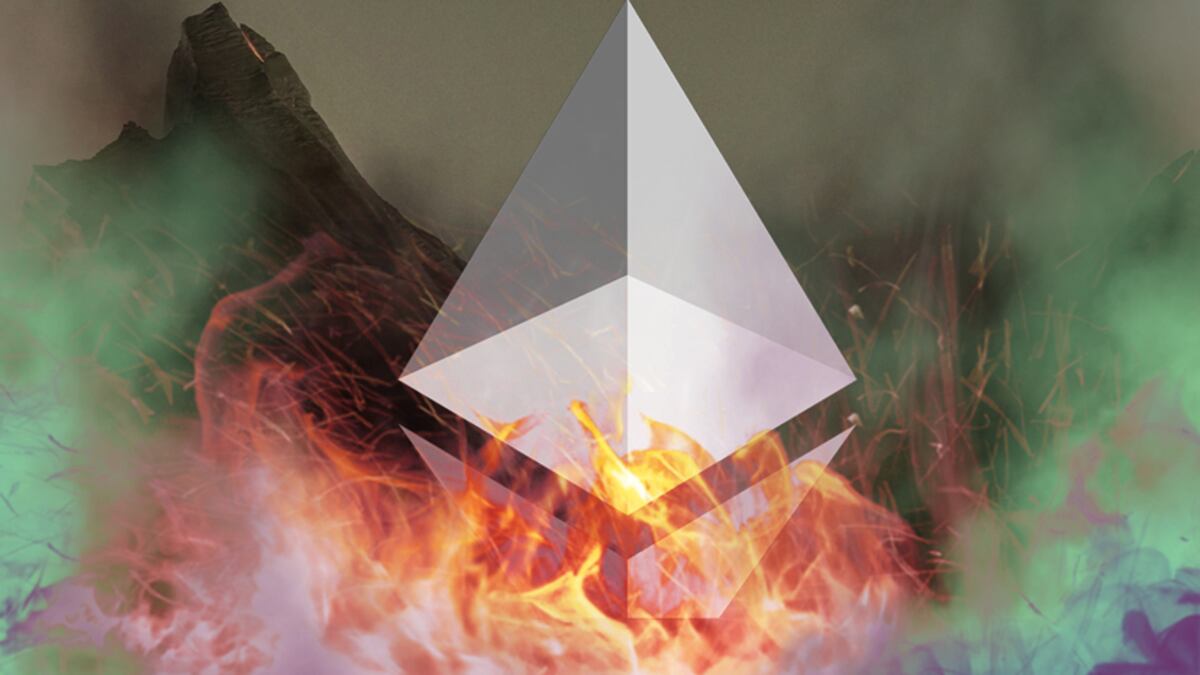The surge in popularity of “memecoins” trading on Ethereum has driven transaction fees and the amount of Ether burned to their highest levels in over 10 months.
Many Ethereum bulls view the reduction in Ether supply as a positive price catalyst, arguing that if demand for Ether remains steady or increases while the circulating supply shrinks, its price should rise.
Over the past week, Ethereum burned $76.7 million worth of Ether used in transactions on the network, according to data from Ethereum analytics site ultrasound.money.
The second-biggest decentralised exchange, Uniswap, the main hub for memecoin trading, accounted for about 35% of all transaction fees paid on Ethereum over the past week. Trading pools for memecoins like Pepe were some of the most used in the past 24 hours, facilitating transactions worth over $55 million.
“Memecoin mania has resulted in 0.8% of the supply being burnt per year at these elevated gas levels,” McKenna, the pseudonymous head of research at crypto hedge fund ROK Capital, told DL News.
NOW READ: ‘’Sandwich bots’ filch millions off unwitting investors during meme coin rally
Pepe, which only launched on April 14, has soared 633% over the past week, reaching a market cap of $690 million. Its ascent has spawned dozens of rival memecoins hoping to replicate its success. Turbo, dubiously marketed as the first AI-created memecoin, and Wojak, a memecoin birthed from another popular internet meme, have also registered seven-figure trading volumes over the past day.
The shrinking Ether supply
The increased activity on Ethereum from the memecoin trading frenzy has fuelled more Ether burning.
When the amount of Ether burned is greater than the amount awarded to validators, the Ether supply shrinks. The current increase in trading activity puts the amount burned at three times that of new Ether entering the Ethereum ecosystem.
NOW READ: Arbitrum reels from voting drama as concerns over decentralisation loom large
McKenna also said that the burned Ether is equivalent to $1.9 billion in yearly “structural buy flows.” In other words, if the current level of usage is sustained, those using Ether to pay for transactions will have to spend the same amount to replace what they are spending.
As activity on Ethereum spikes, as it has with the recent memecoin trading frenzy, the cost to submit transactions also increases.
That’s because Ethereum can only process only a limited number of transactions within each “block” that is validated and added to its blockchain. When demand for this “blockspace” increases, users pay premiums to validators to get their transactions processed ahead of others in the queue. At the same time, the network also gradually raises the required base fees needed to submit transactions.
NOW READ: ‘OpenSea is in big trouble’ as Tiger Global cuts valuation by 76%
The Ethereum network burns these base transaction fees, removing the Ether paid from circulation. This means that during periods of sustained high network usage, the amount of Ether burned increases significantly.
Ether is trading at $1,900 at the time of writing, up 2.3% from yesterday.
